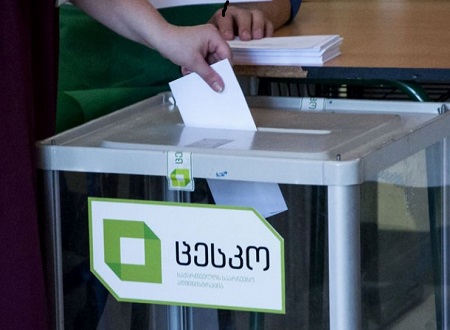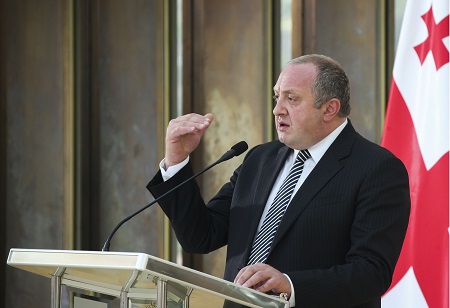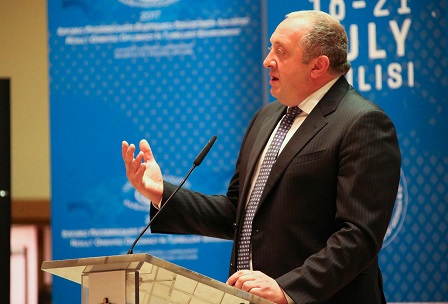President signs amendments in election code
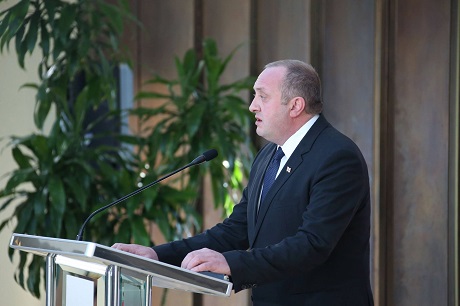
Today the President of Georgia Giorgi Margvelahsvili signed the majority initiated amendments in the election code which were adopted by the legislative body at the end of December last year.
There were two major amendments approved in the election code by the Parliament, one related to the redistricting of 73 single- mandate constituencies around the country and another linked with the increase of threshold from 30% to 50% for the Majoritarian Member of Parliament (MP) candidates.
After the President's signature the amendments can be practically implemented.
Despite the signing of the changes the President stressed that the "amendments had nothing to do with the election reform the Georgian political forces have spoken for years.”
These amendments are just technical changes and do not reflect the common approach of the political players acting in Georgia.”
The President said that it was also "unclear for him” why the majority Georgian Dream (GD) coalition team postponed major election reform for 2020 when all the rest political parties and the civil sector had a joint position on what type of election system the country should have.
The Georgian legislative body consists of 150 lawmakers who are elected through a mixed system: 73 MPs out of the 150-seat legislative body are elected from 73 single-mandate constituencies and the rest 77 by a party-list, proportional system.
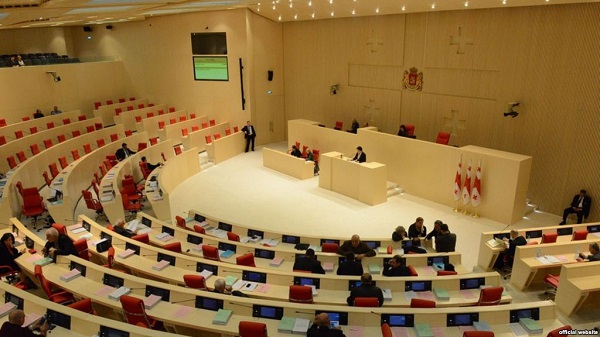
Georgian lawmakers are elected through a mixed system.
With the majoritarian election system, only one MP is to be elected per constituency. With the proportional representation system several members of parliament are to be elected per constituency.
Basically every political party presents a list of candidates and voters can select a list that is they vote for a political party. Parties are assigned parliamentary seats proportionally to the number of votes they get.
The single-mandate constituencies were disproportionate in Georgia, several of them with thousands of voters and some of them with just dozens of voters.
Thus, there was a need to somehow produce equal constituencies.
Through the redistricting of the single-mandate constituencies some of them were merged and several divided in order to reach the balance.
For instance, capital Tbilisi which enjoyed 10 single-mandate constituencies in previous years through the amendments will have 22 such constituencies.
Mountainous, western Ambrolauri, Oni, Lentekhi and Tsageri regions will have only one Majoritarian MP in Parliament after this year parliamentary race.
When it comes to the threshold it was 30% previously and now it is stretched to 50%. According to the authors of the amendments the MP elected with more than 50% of votes will have higher public trust.
The opposition and the civil sector were demanding the annulling of the majoritarian election system, stating that Georgia should have only the MPs elected based on proportional, party list voting.
 Tweet
Tweet  Share
Share

